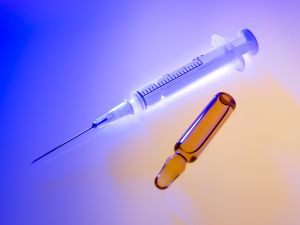Over the past decade, there has been a huge increase in the number of patients taking testosterone replacement therapy (TRT) drugs. A recent news article from IndyStar examines whether TRT drugs are a virtual fountain of youth or simply an increased risk for a having a heart attack.
 Drug companies who manufacture testosterone replacement therapy products have created numerous ads targeting people who feel tired, have a lowered sex drive, feel depressed, gained weight, have thinning hair, and other characteristics of normal male aging and have convinced many of these men that they suffer from a condition known as “Low T.” Low T is a term created by drug companies to mean having a lower than average testosterone level, despite it not being an accepted medical condition.
Drug companies who manufacture testosterone replacement therapy products have created numerous ads targeting people who feel tired, have a lowered sex drive, feel depressed, gained weight, have thinning hair, and other characteristics of normal male aging and have convinced many of these men that they suffer from a condition known as “Low T.” Low T is a term created by drug companies to mean having a lower than average testosterone level, despite it not being an accepted medical condition.
Testosterone replacement products, which come in the form of injections, pills, skin patches, gels, creams, and other delivery systems, have been top sellers in the pharmaceutical industry, with millions of men taking TRT drugs. Between 2010 and 2013, TRT sales have increased by more than 76 percent.
However, as our testosterone injury attorneys understand, the medical community is not convinced TRT drugs do anything beneficial for the majority of users taking the drug, while doctors are convinced of serious side effects, including the increased risk of stroke and heart disease.
It is important to understand that when TRT drugs were first put on the market in the 1970s, they were approved to treat a very rare medical condition known as hypogonadism. Hypogonadism is defined as a decreased function of the gonads (testicles) that can cause another condition known as sex hormone biosynthesis. While the incidents of hypogonadism have not increased over the years, drug companies essentially rebranded an older and unprofitable medication as a panacea for all the characteristics of male aging and told users that, by taking testosterone replacement drugs, they would feel younger, have an increased sex drive, be able to live a more active life, and be less depressed.
There is no accepted medical research that corroborates this information, and doctors do not even really know what it means to have a low testosterone level. That is because there is no such thing as normal T level or even a low T level. Doctors know what the average range is for men of a certain range but do not know if there is any significance to having a testosterone level above or below that level. While taking TRT drugs will increase one’s testosterone level, there is no evidence to support that it has a beneficial value.
The lack of any known benefit is even more important when considering there are known risks to taking TRT drugs. Every time a patient takes a drug, the patient is supposed to be told of all benefits and risks in order to make an informed decision as to whether it is worth the risk. Sometimes it is worth taking a medicine that has a serious risk. For example, if a patient is dying of particular disease and told a medication may help them, it may be worth it; but, in the case of TRT, there is a chance it will make the condition worse, and the patient may still decide to take the risk.
In the case of TRT drugs, patients are being told all the wonderful things the drug can do, even though claims are not supported by sufficient research, and they are not being told of the serious risks that can occur.
Call the Boston Jeffrey Glassman Injury Lawyers for a free and confidential appointment — (617) 777-7777.
Additional Resources:
Testosterone treatment: Fountain of youth or heart attack risk?, November 21, 2014, IndyStar
More Blog Entries:
FDA Announces Testosterone Meds Must Carry Broader Warning, July 7, 2014, Boston Products Liability Lawyers Blog
 Product Liability Lawyer Blog
Product Liability Lawyer Blog

